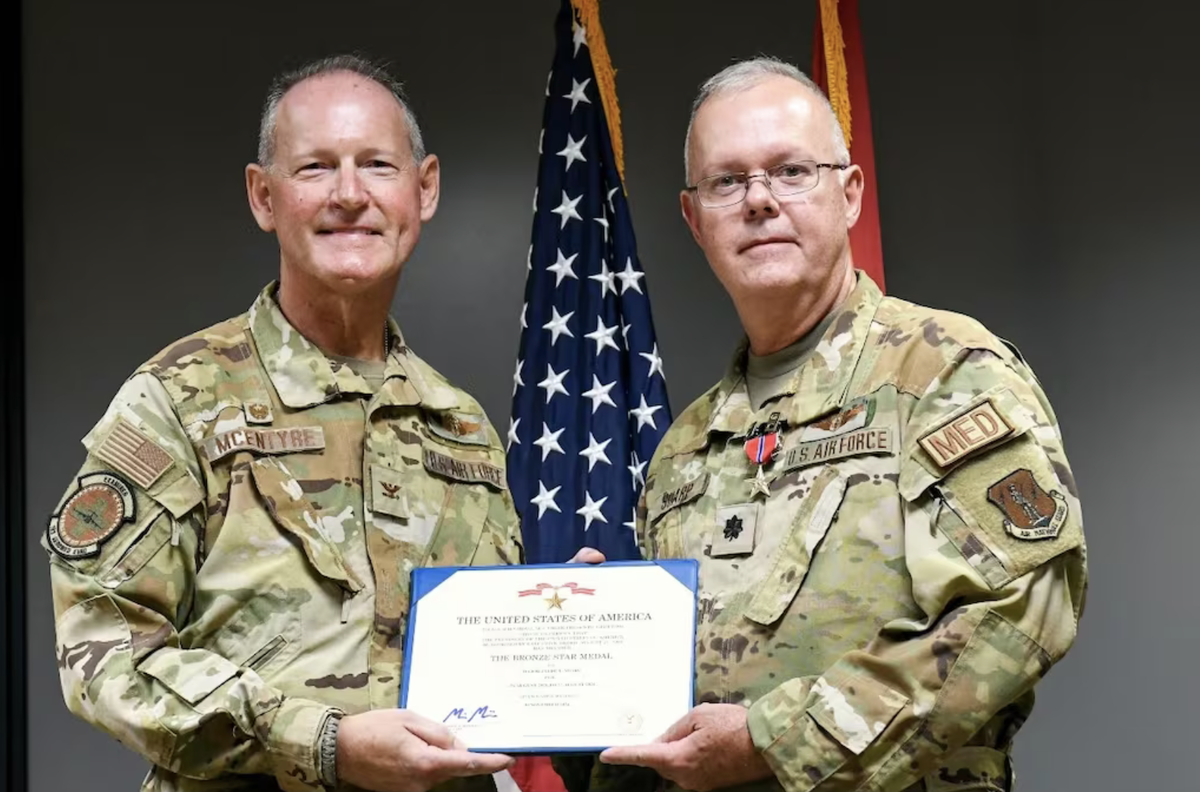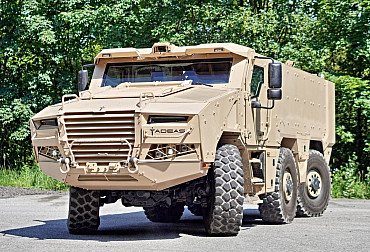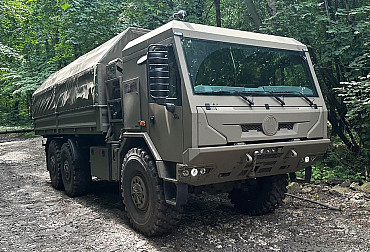Three years after Abbey Gate: An Air Force nurse’s heroic actions honored with the Bronze Star
Three years have passed since the tragic and chaotic events at Abbey Gate, Hamid Karzai International Airport, during the final days of the U.S. withdrawal from Afghanistan. This month, Air Force Lt. Col. Jayde Sharp was awarded the Bronze Star for his exceptional bravery and selflessness during that fateful time. Sharp, a dedicated flight nurse with the 183rd Aeromedical Evacuation Squadron of the Mississippi Air National Guard, arrived in Afghanistan in mid-August 2021, unprepared for the horrors that awaited him.

Arrival in a War Zone
When Lt. Col. Jayde Sharp arrived in Afghanistan on August 18, 2021, he was part of a mission to support the U.S. withdrawal from a country that had been engulfed in conflict for two decades. Sharp deployed to Hamid Karzai International Airport with the 183rd Aeromedical Evacuation Squadron, a unit of the 172nd Airlift Wing of the Mississippi Air National Guard. As an aeromedical evacuation officer, Sharp anticipated treating minor injuries like sprains or heat exhaustion, or possibly a local’s pregnancy amidst the chaos. However, the situation on the ground was deteriorating rapidly, and Sharp soon felt the palpable tension in the air.
Eight days into his deployment, on August 26, the atmosphere of anxiety turned into a nightmare when an ISIS-K suicide bomber detonated explosives at Abbey Gate, killing 11 Marines, a soldier, a Navy corpsman, and approximately 170 Afghan civilians. Sharp recalled the moment when the dreaded announcement, “Mass cal,” shorthand for “mass casualty,” echoed over the intercom. In an instant, his mission shifted from providing routine medical care to responding to one of the deadliest attacks during the U.S. withdrawal.
Heroism in the face of chaos
Sharp's training as a flight nurse did not typically involve providing medical care on the ground, especially in a high-threat environment. However, when the explosion ripped through the crowds, he did not hesitate. Leaving the relative safety of his medical facility, Sharp rushed to the scene to treat and triage the wounded, placing himself at great personal risk amidst the threat of further attacks.
Over the next few hours, Sharp played a crucial role in evacuating 38 severely injured civilians and fellow service members. His actions were directly credited with saving numerous lives, including several Marines, one of whom had sustained a severed carotid artery from a gunshot wound to the face and neck. Despite the constant threat of additional attacks, Sharp provided critical medical attention, embodying the courage and selflessness that the Bronze Star recognizes.
According to the citation that accompanied his award, “His remarkable performance and selfless commitment to his fellow comrades-in-arms and the local populace saved countless lives.” The citation further emphasized that Sharp’s actions not only preserved lives but also demonstrated extraordinary bravery under fire, qualities that distinguish him as a true hero in the annals of U.S. military history.
Witnessing the Aftermath
Back at the airport’s medical facility, Sharp was confronted with the grim reality of the attack. He witnessed the bodies of the 13 fallen U.S. service members brought through the doors, a sight that would haunt him for years to come. Yet, there was no time to process the trauma; Sharp and his team worked tirelessly, around the clock, to prevent further loss of life.
The unity and dedication of his fellow medical personnel were a source of strength for Sharp. Despite the horrors of that day, the collective resolve of his team left an indelible mark on him. However, the traumatic experience of Abbey Gate was not something he could easily leave behind.
The struggle to return home
Returning home was far from a relief for Sharp. The experience had irrevocably changed him. He found himself intolerant of large crowds, living each day on edge, grappling with the trauma he had endured. It was not just the chaos and the lives lost that weighed on him, but the constant fear for his own survival. “What bothered me the most was the emotional part of [thinking] this could be the end,” Sharp reflected.
The harrowing threat level on the day of the Abbey Gate bombing was underscored by a chilling warning from one of Sharp’s superiors, who told the team, “If you’re not right with the Lord, you need to get right.” In those tense moments, Sharp’s thoughts turned to his family. He wondered how they would cope with his death—how his wife, children, and grandchildren would continue without him. Such thoughts had to be pushed aside, especially when faced with the grim reality of treating a young Afghan boy, who, in his innocence, reminded Sharp of his own four-year-old grandson.
Sharp and his team performed CPR on the child, managed to resuscitate him, and placed him on a ventilator. Despite their efforts, the boy was evacuated but later succumbed to a brain bleed. The image of the child still haunts Sharp, a stark reminder of the innocent lives caught in the crossfire of war. “Service members make decisions to put themselves in harm’s way, but the child did not have a choice,” he lamented. The boy’s parents, in their desperate attempt to secure a better life for their child, had inadvertently led him to his tragic end.
Finding a way forward
Even three years later, the events of Abbey Gate feel like they happened yesterday for Sharp. He is only now beginning to regain some semblance of normalcy. “There was no way to train for that experience,” he said. “It was just something those on the ground had to find a way to deal with.” Sharp credits his family, friends, and the support of his fellow service members, particularly those from the 183rd and 172nd units, for helping him navigate the difficult aftermath of his deployment. “I don’t know how to thank the 183rd and 172nd enough,” he expressed with deep gratitude.
Small acts of kindness amidst horror
In the immediate aftermath of the attack, when the team was critically low on blood supplies, Sharp received a delivery of 50 units of blood from Ramstein Air Base in Germany. To his surprise, nestled atop the lifesaving cargo was a Mexican food MRE (Meal, Ready-to-Eat) with his name scrawled across it in Sharpie—a small, thoughtful gesture from the chief nurse at Ramstein, a former colleague from the 183rd. Amidst the horror, this act of kindness brought a fleeting smile to Sharp’s face. His curious colleagues inquired about the package, but Sharp, still in the midst of an overwhelming crisis, simply responded, “I’ll tell you later,” before returning to the pressing task of saving lives.
A Hero remembered
Lt. Col. Jayde Sharp’s story is one of courage, resilience, and an unwavering commitment to his duty and fellow human beings. His actions during the Abbey Gate attack exemplify the highest standards of the U.S. military, and his recognition with the Bronze Star is a testament to his heroism. As he continues to heal from the scars of that day, Sharp remains a poignant reminder of the sacrifices made by those who serve—and the profound impact of their bravery on both their comrades and the lives they strive to save.








